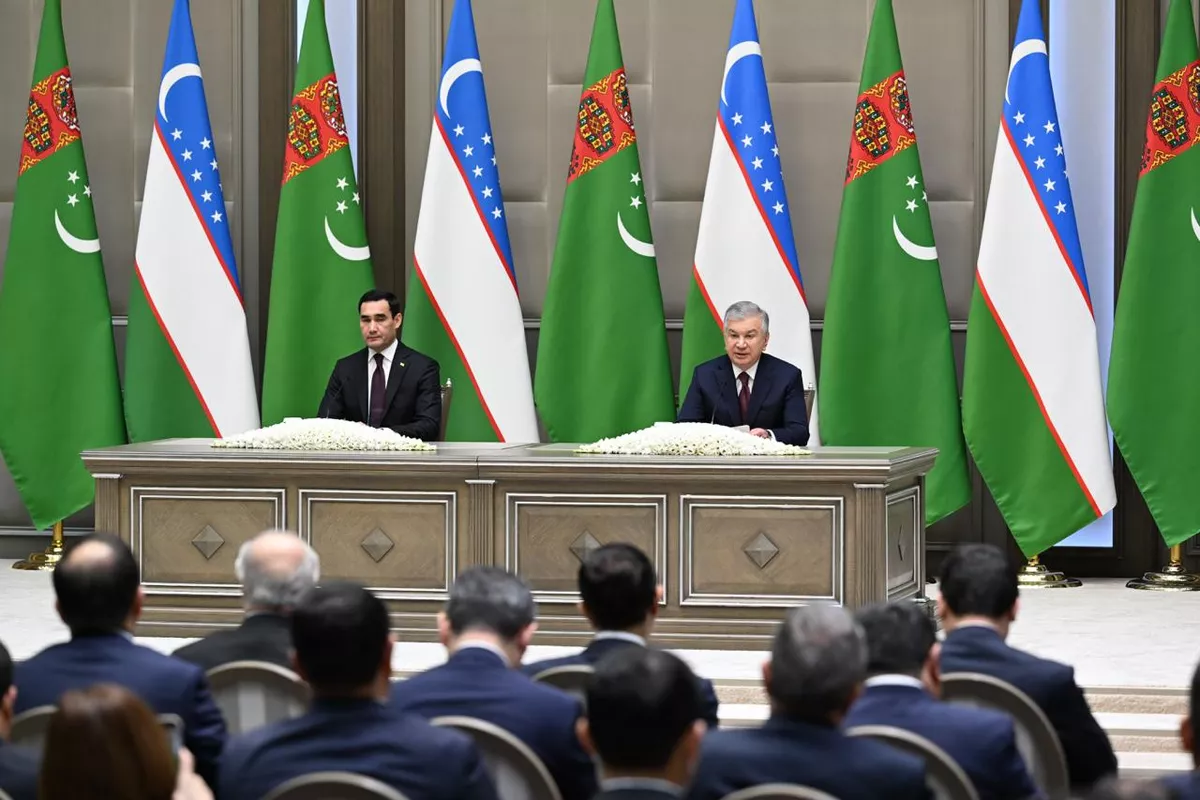
Uzbekistan and Turkmenistan have agreed to double their bilateral trade turnover from $1 billion to $2 billion, following expanded-format talks between President Shavkat Mirziyoyev and President Serdar Berdimuhamedov at the Kuksaroy residence in Tashkent.
The two leaders discussed ways to strengthen cooperation in trade, industry, energy and transport, expressing a shared commitment to elevating the partnership to a new stage, The Caspian Post reports, citing Uzbek media.
At the beginning of the meeting, President Mirziyoyev stressed that the Turkmen leader’s state visit reflects the strength of centuries-old friendship and good-neighborliness between the two nations. The talks continued with the participation of both countries’ official delegations.
The sides reviewed priority areas for expanding the Uzbekistan-Turkmenistan strategic partnership, noting the solid achievements in trade, transport, energy, water management and other key sectors. President Mirziyoyev highlighted the significant contribution of Gurbanguly Berdimuhamedov, Chairman of the Turkmen People’s Council, to the progress of bilateral cooperation.
Officials pointed out that bilateral trade has doubled in recent years, surpassing $1 billion. Both leaders agreed that there is strong potential to increase this figure to $2 billion in the near future by expanding the range of traded goods and making better use of the free trade regime.
The launch of the Shovot-Toshhovuz border trade zone was recognized as an important step toward boosting cross-border commerce. The two sides agreed to replicate this model in other locations, including the Olot-Farob area.
Expanding industrial cooperation was also a priority. The leaders emphasized involving business communities in new joint projects focused on construction materials, pharmaceuticals, food products and other high-demand goods.
In the energy sector, Uzbekistan and Turkmenistan agreed to deepen their mutually beneficial partnership, including joint development of promising deposits.
Transport connectivity, described as a vital link for the two economies, was another key discussion point. Both sides noted growth in freight volumes and ongoing simplification of customs and logistics procedures. They also reached agreements on jointly developing the Turkmenbashi port and resuming direct flights between Tashkent and Ashgabat.
To ensure timely implementation of the agreements, the countries plan to hold the next meetings of the Intergovernmental Commission and the Business Council by the end of the year.
Humanitarian cooperation was highlighted as a strong foundation for the broader partnership. Cultural days and film festivals held in Urgench and Tashkent attracted significant public interest. The parties agreed to continue cultural exchanges, including regular concerts, theatre tours, a Youth Forum in Khiva and new joint film productions. Plans were also made to intensify cooperation in healthcare and medical science.
At the conclusion of the talks, both presidents instructed their governments to prepare and approve a comprehensive roadmap for implementing all agreed initiatives.
Share on social media